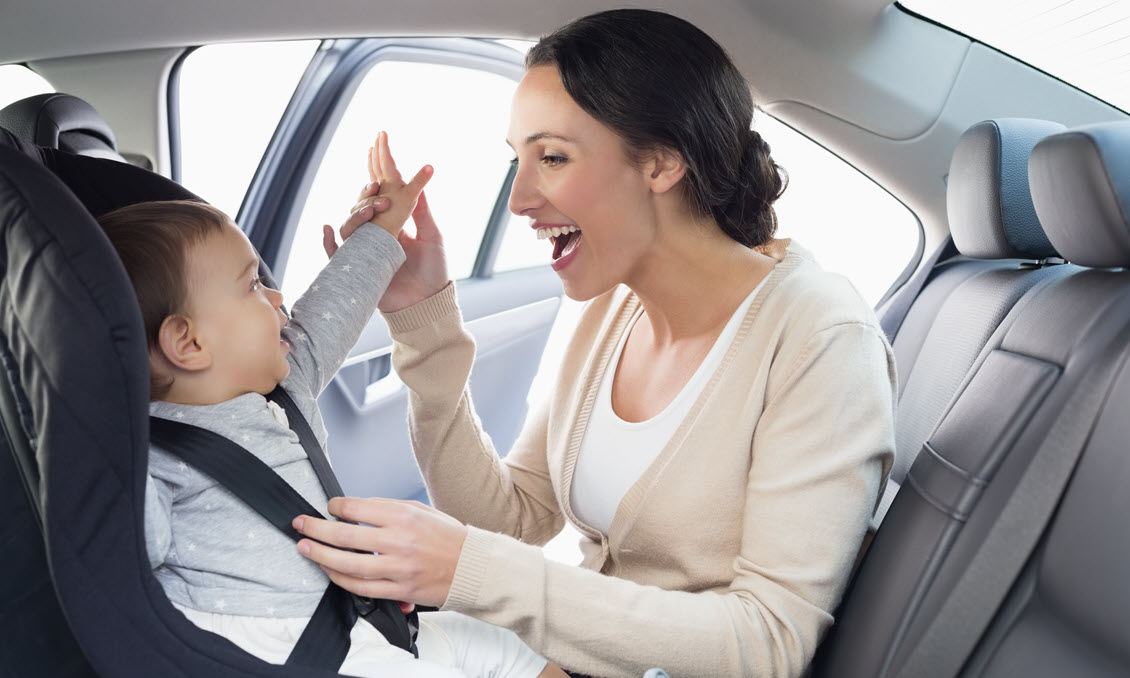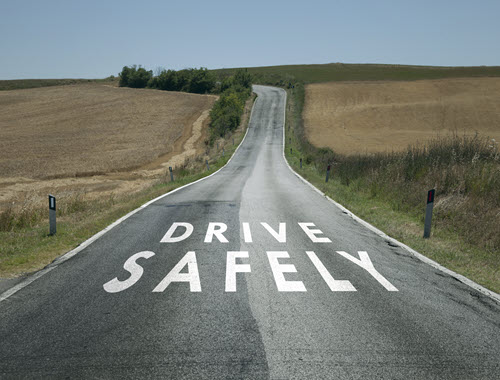My Cart (0 Items)

Traveling with a baby or toddler is far different from traveling on your own or even with older children. Prepare ahead of time to ensure your trip is as safe and sane as possible. A bit of foresight can spell the difference between a safe, enjoyable trip, and a hectic one fraught with emergencies and problem situations.
Your child's car seat should not only be comfortable but also safe. What's more, it's best to buy one new rather than accept a hand-me-down or purchase a used one. As Consumer Reports points out, you may have no way of knowing if a used car seat was involved in a car crash, as not all forms of damage are immediately visible to the naked eye. Furthermore, a used car seat model may have been recalled, and it almost certainly won't have as many safety features as a new model.
Before heading out to buy your new car seat, take some time to check out the back of your car. Measure the area if you have more than one child to ensure that the car seat and your other child (or children) can fit in the back seat comfortably. Check your vehicle's owner manual to see if your vehicle has a LATCH (Lower Anchors and Tethers for Children) system to tether the car seat into the car, and if so, where this system is located. Ideally, it should be in the middle seat as that's the safest place to install a car seat.
Once you know the best size and model options for your new car seat, it's time to start shopping. Check out suitable car seat options and make sure the one you pick has a five-point harness, side-impact protection, and LATCH compatibility. If money is not an object, invest in a model that also has an anti-rebound bar at the foot of the seat. Additionally, you'll also want to see what other parents have to say about the comfort level of the seat, as some models are made with better fabric than others.
If you plan on making frequent car trips out of state, it's wise to check the baby car seat rules for the states you are traveling through. Each state has its own regulations and being aware of them can help you avoid being pulled over and fined.
Even the best car seat won't be safe for your little one unless it's installed properly. Follow the instructions given on the package to ensure the seat is properly installed in the car. Alternatively, you may want to ask for professional help if you are doing it for the first time and/or don't understand the installation instructions. Car seat inspection stations have certified technicians on hand to show you how to install a set or inspect your seat once you've installed it on your own. You can easily find a station near your home or place of work via the NHTSA website.
A vehicle breakdown on a long trip with a baby is sure to be stressful for all involved. To avoid problems, have your car inspected before you start your trip. Make sure the mechanic checks your transmission fluid, antifreeze or coolant, brake fluid, power steering fluid, and all the car's hoses and belts. Check your tires, your oil, the brakes, and all your car's lights. If something is broken or damaged, have it repaired or replaced before you start your trip.
At the same time, have some tools on hand in case something goes wrong on the trip. A jack and spare tire are a must for any long car trip. Jumper cables will enable you to have your car jumped if the battery dies during your trip.
Babies, like adults, don't like to be too hot or too cold. Dress your baby in layers, so you can easily put on or take off a sweater or extra pair of pants as needed. Avoid one-piece suits as you'll have to take the whole outfit off if your baby spits up or his or her diaper leaks during the trip. It's best to use a two-piece outfit that your baby has worn before so you know he or she will feel comfortable wearing it.
Most parents are aware that babies need plenty of changes of clothes, diapers, wet wipes, bottles, formula, and some form of entertainment for the trip. However, there are many other accessories and items that could make a trip more relaxed and enjoyable than it would be otherwise. A cooler can keep foods or drinks at the right temperature if the weather is very hot or very cold. A child car seat head support helps a child sleep comfortably in a car seat. A white noise machine can help a baby relax even if you travel through noisy areas.
Bring a first aid kit in case your baby starts feeling under the weather or gets hurt on your trip. Band-aids, a thermometer, Tylenol for infants, and other basic first-aid supplies should be kept in the car at all times. If your baby is taking prescription medication, bring ample medicine along with the prescription in case you need to get a refill during the trip. It's also wise to take your baby's ID, be it a passport or birth certificate, with you on your trip.

A baby should not remain in a car seat longer than two hours at a time. Keep this in mind when planning stops to ensure you can pull over at the right time. You'll also want to plan for unexpected pit stops if baby gets fuss, spits us, or needs a diaper change. Make a list of every single possible rest stop on your way so you know where you can pull over as the need arises.
If you're attending an event or gathering at your final destination, plan to arrive ahead of time so you can take a nap and change the baby's diaper and clothes before the event. Knowing that you're short on time during your trip and won't have time to take a break before heading into an eventful afternoon or evening can be stressful both for you and your little one.
Book a hotel in advance to avoid last-minute hassles. Look for one that is family-friendly, clean, and in a safe, quiet location. Make sure the room will have a microwave and refrigerator, so you can prepare food and/or store it overnight. A hotel with a washing machine is a plus if you don't want to deal with a large pile of dirty, smelly laundry at your final destination. Look over the photos to see if the room has a bathtub as many hotels only have shower stalls.
Because babies need lots of extra care and attention, it's all too easy to focus on your baby's needs and forget about your own. However, that's not a healthy lifestyle either for you or your little one. Your baby needs you to be healthy, calm and collected during the trip. Pack for yourself ahead of time to ensure you have everything you will need during your trip. Bring plenty of food and snacks in the car as you could wind up traveling for long stretches with no restaurants or stores in sight. Have an extra change of clothes for yourself in baby's diaper bag in case your baby spits up on you during the trip.
Get as much rest as you can the night before your trip. Dress comfortably, bring music or podcasts you enjoy listening to, and have some coffee and a bite to eat before you set out. If baby gets fussy, don't get upset or blame yourself, even if you've forgotten something or didn't plan your trip as carefully as you would have liked. Pull over, take a deep breath, and calm yourself before you attend to your little one. If need be, you may want to consider pulling over in a nearby town, renting a room in a hotel to take a break before you keep driving. A warm bath is almost certain to cheer you and your baby up.
If you can't pull over, the baby is inconsolable, and you're the only adult in the car, use deep breathing techniques to calm yourself. Doing so lowers your blood pressure and calms you, so you can focus on the road until you're able to pull over. Play calm music and speak calmly to baby in the back seat, reassuring him or her that everything will be alright. You can also try pointing out the trees, animals, or other interesting sights outside the window to distract baby from whatever is bothering him or her.
A long car trip with a baby can be a challenge, and there is no telling just how your baby will behave. Some doze off and sleep for long stretches, while others don't like the monotony and cry and fuss for just about any reason. Unforeseen circumstances such as car breakdowns or inclement weather can also complicate your trip, causing delays and safety hazards. Thankfully, there are things you can do as a parent to increase the odds of your trip being a safe and happy one. Plan ahead of time, make sure you have everything you'll need for your travels, and be adaptable as you travel to meet your baby's needs as they arise.